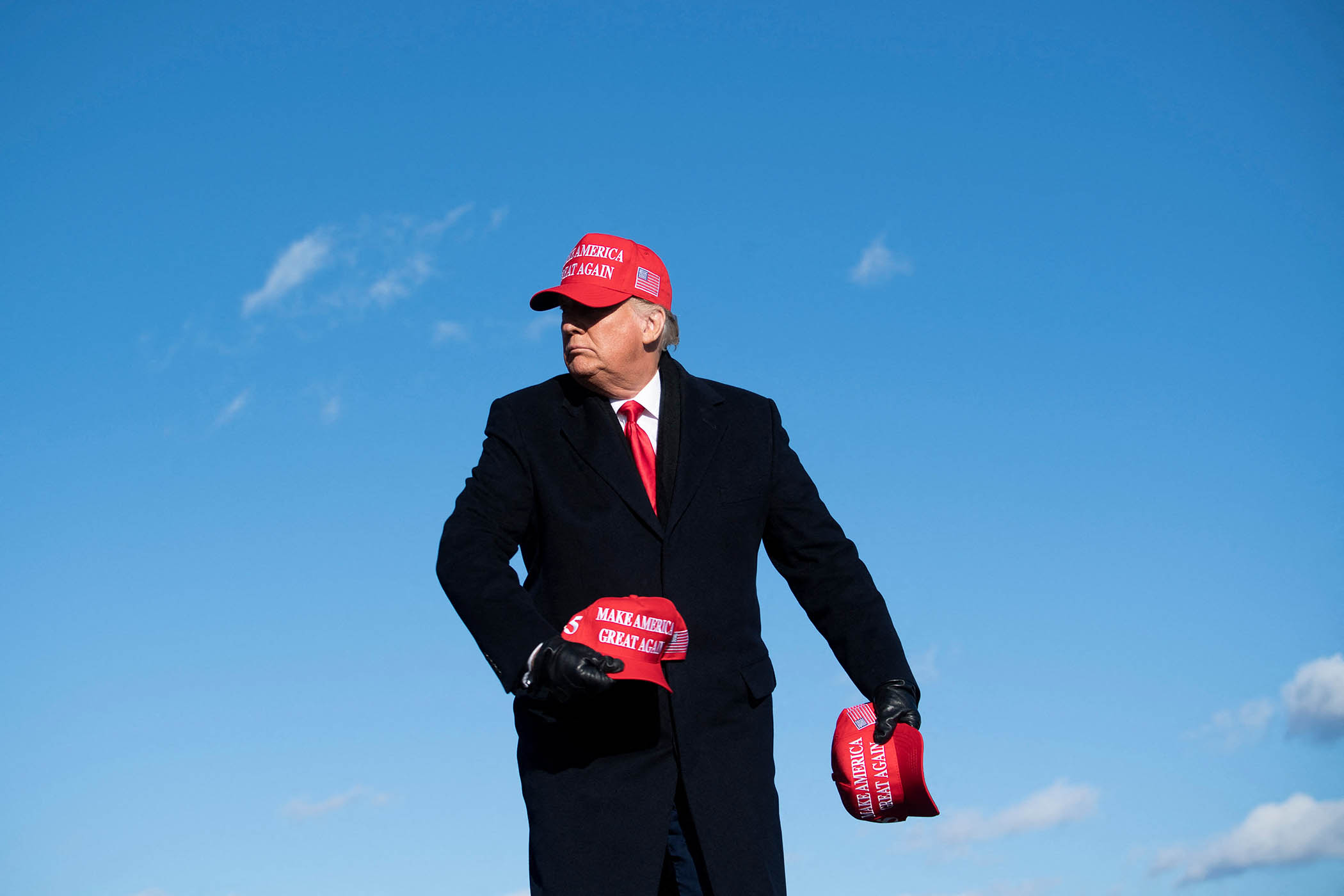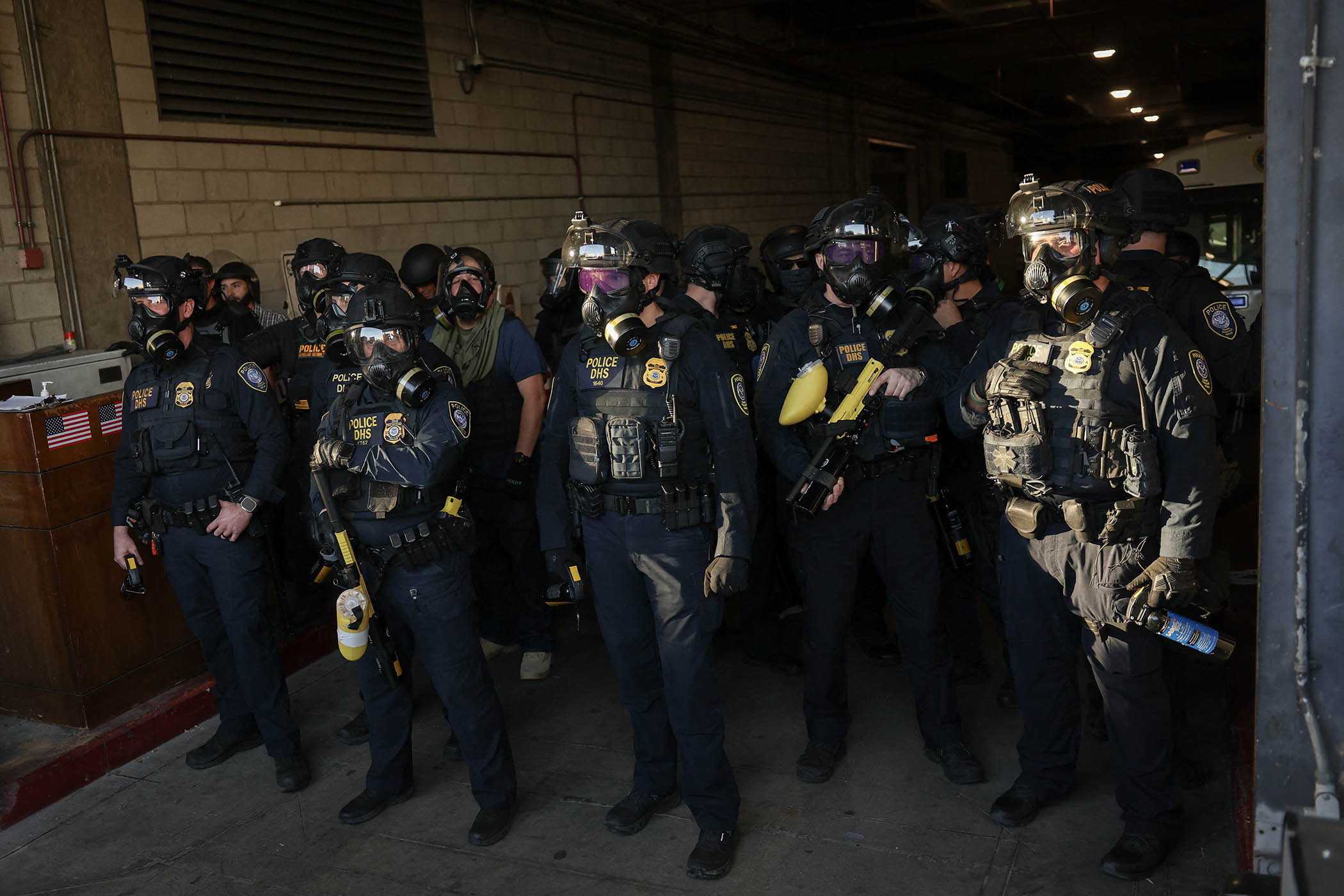Deep in the woods on Marine Corps Base Quantico, dozens of newly commissioned officers prepare for their assault on Mout Town, creeping through the trees in search of the best entry point, before the smoke grenades fly and gunfire rings out.
Under the close watch of military trainers, the marines move from building to building, putting into practice their basic training in an urban combat environment, which their instructors say will prepare them for the future of warfare anywhere in the world.
“Any sort of threat profile, violent or violent extremist, whatever the situation is, our duty is to make sure we have lieutenants that are ready to lead wherever we’re assigned,” said Lt Col Michael Breslin, the school’s warfighting director.
During the visit by a small group of foreign journalists on 11 September, the marines were training for combat operations in a mocked-up city of empty shops, deserted homes and windowless municipal buildings, where the signs above the doors were in Dari (Afghan Persian).
But if Donald Trump gets his wish, troops could soon be put through their paces on the streets of Democratic-run US cities, which he painted as crime-ridden war zones teeming with enemy combatants in a speech to military top brass at the same Quantico base on Tuesday.
“San Francisco, Chicago, New York, Los Angeles, they’re very unsafe places. And we’re going to straighten them out, one by one. This is going to be a major part for some of the people . That’s a war. It’s a war from within,” he said.
“We should use some of these dangerous cities as training grounds for our military,” he added, spelling out that he saw future theatres of war not overseas, but on domestic soil.
“We’re under invasion from within, no different than a foreign enemy, but more difficult in many ways, because they don’t wear uniforms,” he told the roomful of about 800 stony-faced generals.
The military has traditionally been non-partisan and above political influence in the United States, in part to prevent a concentration of power in the hands of one president.
But Trump has upended that convention, sending marines and national guard troops into American cities and along the US-Mexico border in an unprecedented deployment of military personnel to implement domestic policy goals.
Newsletters
Choose the newsletters you want to receive
View more
For information about how The Observer protects your data, read our Privacy Policy
He impressed on America’s most senior military leaders – called to Quantico from command posts all over the world – that he expected them to get behind his policies.
“It was clearly communicated that this is the programme, and either get with it or get out,” said Virginia Burger, a senior defence policy analyst at the Project on Government Oversight, and a former warfighting instructor at Quantico.
“He stood in front of this room of uniformed service members who spent their careers acting professionally as an apolitical body, and said: ‘Here are my political aims, here are my incredibly politicised goals and thoughts and beliefs, and I’m going to espouse them to this room of people as if they are now our collective beliefs.’”
Days after his inauguration, Trump deployed marines and national guard to the US-Mexico border. In June, he sent marines and the national guard into downtown Los Angeles, claiming local law enforcement needed help quelling protests.
The national guard has since been deployed to Washington DC and, in the past few days, began arriving in Portland, Oregon, where Trump authorised “full force” in what he claimed was a “war-ravaged” city. He has also threatened to send troops into Chicago, New York, Baltimore and Memphis.
Legal challenges against the domestic deployments are pending, and there are many restrictions on what duties soldiers can carry out at home. Troops cannot take part in law enforcement, such as making arrests and searching individuals.
So far, they have been deployed to protect buildings. In DC, national guardsmen have been seen clearing litter and spreading mulch under the cherry trees on the National Mall.
But Burger said the simple presence of heavily armed military personnel on the streets set a dangerous precedent: “It’s just getting people used to having what is essentially an overtly authoritarian presence in their streets.”
As well as eroding trust between the public and the armed forces, and removing local accountability, Burger said there were grave safety concerns when sending combat-ready troops with no training in law enforcement and crowd control on to US streets.
“You’re putting the marines at risk because you’re putting them in a situation they’re not trained to handle,” she said. “And you’re putting the American public at risk by putting these people who are trained to kill and exist in a combat zone in their local communities.”
Photograph by US Marine Corps Training and Education Command



